Reviews
John Woo
USA, 1997
Credits
Review by Glenn Heath Jr.
Posted on 15 May 2012
Source Paramount DVD
Categories Favorites: Transformations
John Woo’s films are ballets punctuated with bullets, and they breathe with life as they explode with death. In a fleeting breath a Beretta round will lacerate the skin of a once-gliding body, its sudden lifelessness a stark reminder of man’s mortality. Woo’s cinema is indeed a study in opposites colliding, and his compositions exhibit a visual grace that consistently crashes up against editorial fragmentation. Yet his patented slow motion photography helps clarify those subtle human elements hiding beneath the multi-faceted mise en scène, a valuable contrast to the locomotive-like speed occurring in every other frame. Ultimately, Woo utilizes this dichotomy to celebrate his favorite motif: the power of violent transformation. It’s a process obsessed with finding unexpected human immediacy inside the arena of carnage.
Both of Woo’s Hong Kong masterpieces, The Killer and Hard-boiled, initially explore transformation on a narrative level, subverting traditional action film tropes by riffing on the elasticity of character identity. Cops become killers, killers become heroes, and all notions of morality are swept up in the hurricane force winds of bloodshed. Instead of resting comfortably inside the action genre, Woo’s work takes on an operatic quality that challenges even as it excites. Face/Off, Woo’s grand and ambitious American crime film about an ace FBI agent who swaps faces with an international terrorist in order to uncover a bomb plot, is no different. While the psychological and moral shifts in Woo’s finest Hong Kong work are abundant, Face/Off also contains a jarring literalness to the character’s transformation process. It is here that aspects of horror and science fiction invade the action kinetics of Woo’s action landscape, witnessed in the palpable terror sprayed across the faces of both hero and villain as they realize their own transformation into something else.
Face/Off’s swooshing white credits sequence suggests an ongoing fluidity that manifests itself in Woo’s incessant need to spin the camera, like a nimble ballerina endlessly pirouetting for a loving audience. From the moment Castor Troy snipes Sean Archer (and inadvertently his young son Michael) during an afternoon visit to a merry-go-round, the film’s bloody universe never stops swirling. It’s as if the traditional foundations of filmmaking, the core axis of cinematic creation, can’t handle Woo’s bendable aesthetic. When the rifle bullet penetrates Archer’s back, his body flies through the air, leaving his son’s blood splatter on a horse figurine. This won’t be the first time a human body is jettisoned into the sky, tumbling and floundering for some kind of solid ground to stand on. Face/Off will ultimately rely on confrontational standoffs like this to one create shocking transformations of purpose.
The mortal coil that binds Sean Archer and Castor Troy, with both John Travolta and Nicolas Cage getting to engage the stoic desperation of the former and the manic sadism of the latter, is essentially a dynamic physical tango. As the actors transform, with the normally heroic Travolta turning into a diabolical madman and the usually maniacal Cage turning vulnerable and thoughtful, it almost feels like both performers are trying to deconstruct and amplify the persona each has spent years perfecting. The physicality of this relationship and duality comes to fruition almost immediately. At the end of a daring airport hanger shootout between Troy and Archer’s FBI forces, really the first chance Woo gets to show off his brilliance with wide-screen directionality, the two men become entangled together as if locked in dance, only to suddenly release with guns drawn. “What would you do with me locked up?” Troy’s taunting words tap into the amazing necessity one man feels towards the other, verbalizing the yin and yang dilemma present in each Woo film. Moments later, Troy is presumed dead after being slammed into a wire mesh thanks to the propulsion of a jet engine, and Archer feels temporary freedom from his nemesis, returning home an emotionally stable man to wife Eve and teenage daughter. But it’s a faux sense of peace, merely an unearthing of the real transformation that needs to occur in order to salvage his family. Archer is still a tortured and confused warrior at odds with himself, and he expresses this ongoing turmoil when he yells at Jamie for wearing too much make-up: “You change the way you look every week,” the irony being is that he cannot help but judge her for emulating his own broken sense of self. In Face/Off, identity is both a mask and a calling card for transformation, something violently shaken into rebirth.
Face/Off turns into a full fledged genre somersault when an FBI special ops liaison convinces Archer to undergo an experimental surgery and “temporary trade” of identities with Castor Troy in order to obtain information from the criminal’s imprisoned brother, Pollux. An overhead shot of Troy and Archer being wheeled into the frame via separate gurneys is one of the film’s defining images, confrontation through imminent transformation. Woo edits the impending surgical procedure with the same flare and gusto he would a shootout, dissolving from computer screen stats and images to pristine lasers cutting through flesh and “morpho-genetic templates” suctioning off skin. The smoke from Archer’s burning skin lingers in the operating room as if two opposing forces had just exchanged machine gun fire. A few sequences later, the comatose Troy amazingly wakes up to find his face bloodied and skinless, Frankenstein’s monster caught in the narrative of an action film. His retaliation (to infiltrate Archer’s life by wearing his face) is revenge by way of horror; a motif confirmed when Troy’s bloody mug gets reflected in the glasses of the doctor who conducted the surgery seconds before he goes under the knife.
The rest of Face/Off is consumed with the symphony of mayhem and anger produced by the Archer/Troy role reversal. Upon leaving the clinic for a maximum-security prison, Archer tells his handlers “when this is over, I want you take this face and burn it.” The destruction of flesh is the only way out of this horrible looking glass. Troy feels a similar resentment toward Archer’s identity, confessing in the heat of battle, “I don’t know what I hate wearing worse, your face or your body!” But there are equally tender exchanges that spring up throughout Face/Off, and a few stand out as especially beguiling. There’s the moment Troy (as Archer) rubs his face on Pollux, a sick and twisted version of brotherly love, or Archer (as Troy) gliding his hand down Eve’s face with loving resolve, something that terrifies her to no end. Woo gives each a slow motion shot to accentuate the tormented humanity on display. However, Face/Off shows its true sense of dark humor when Troy, attempting the role of father, gives the gothic-dressed Jamie some advice: “Dress up like Halloween and ghouls will try and get in your pants.” Essentially, these are all characters forced to experience life through the perspective of someone they hate, and often their misery is hilarious.
Woo’s obsession with transformation, both physical and emotional, reaches its apex during the explosive set piece inside a swank loft apartment midway through the film. Archer, aided by the very thugs he has spent his life pursuing, and Troy, backed by a squadron of FBI agents, engages in a massive gun battle that sends bits of modern infrastructure flying into the air like exploding fireworks. The lines of combat become completely subjective, good and evil no longer umbrella ideas but shades of gray rooted specifically in the characters duality as they attempt to survive a shooting gallery of Woo’s finest cinematic aesthetics. As “Somewhere Over the Rainbow” resonates from a child’s headset, the bloodshed and destruction is perforated by a sense of innocence, just another entrancing dichotomy in a film bursting with such pairings. For Woo, the art of transformation, both its stunning and repulsive qualities, comes in confronting both your greatest enemy and your elemental self, sometimes in the same breath. Castor sums this up with gleeful panache when he struts toward the imprisoned Archer for the first time wearing his new face. “It’s like looking in the mirror, but not.”
More Favorites: Transformations
-
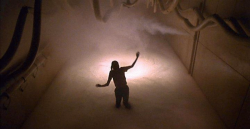
Altered States
1980 -
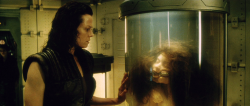
Alien: Resurrection
1997 -
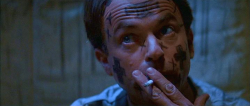
In the Mouth of Madness
1994 -
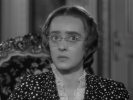
Now, Voyager
1942 -
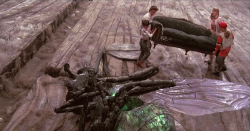
Honey, I Shrunk the Kids
1989 -
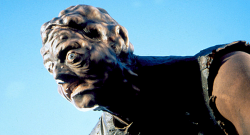
The Toxic Avenger
1984 -
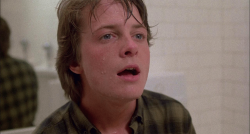
Teen Wolf
1985 -

Teen Wolf Too
1987 -
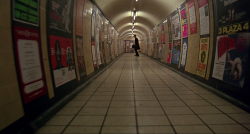
An American Werewolf in London
1981 -
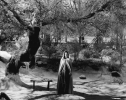
The Curse of the Cat People
1944 -
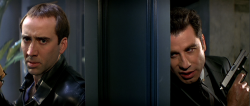
Face/Off
1997 -
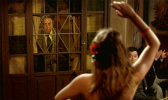
That Obscure Object of Desire
1977 -
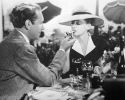
Now, Voyager
1942 -
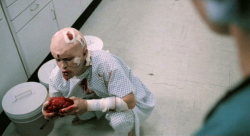
From Beyond
1986 -
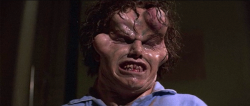
The Beast Within
1982 -
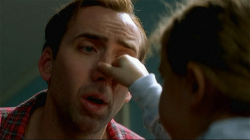
The Family Man
2000 -
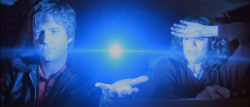
Starman
1984
We don’t do comments anymore, but you may contact us here or find us on Twitter or Facebook.



